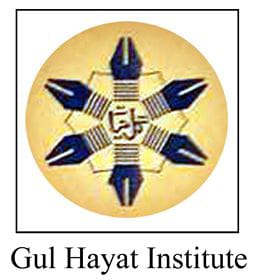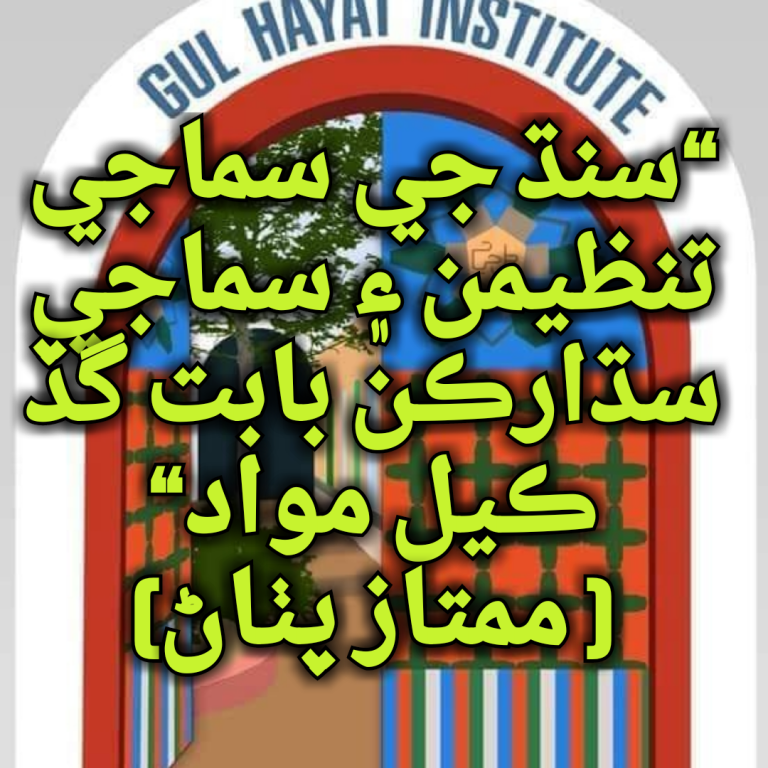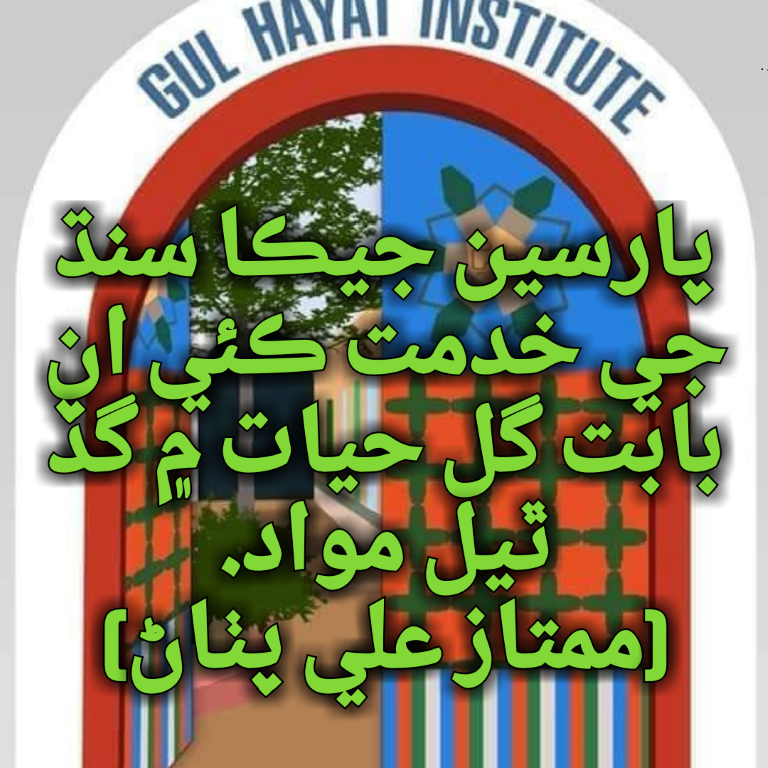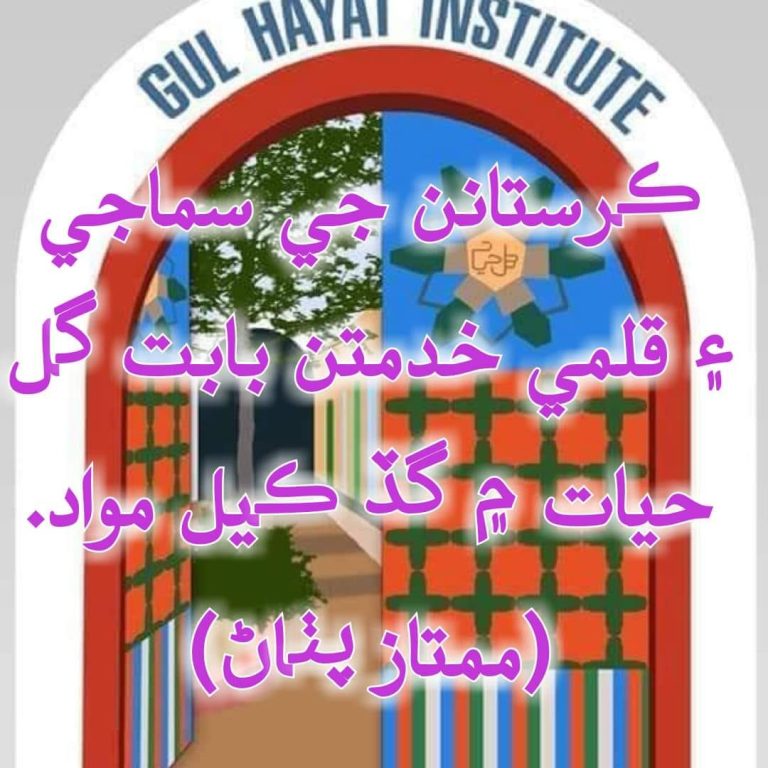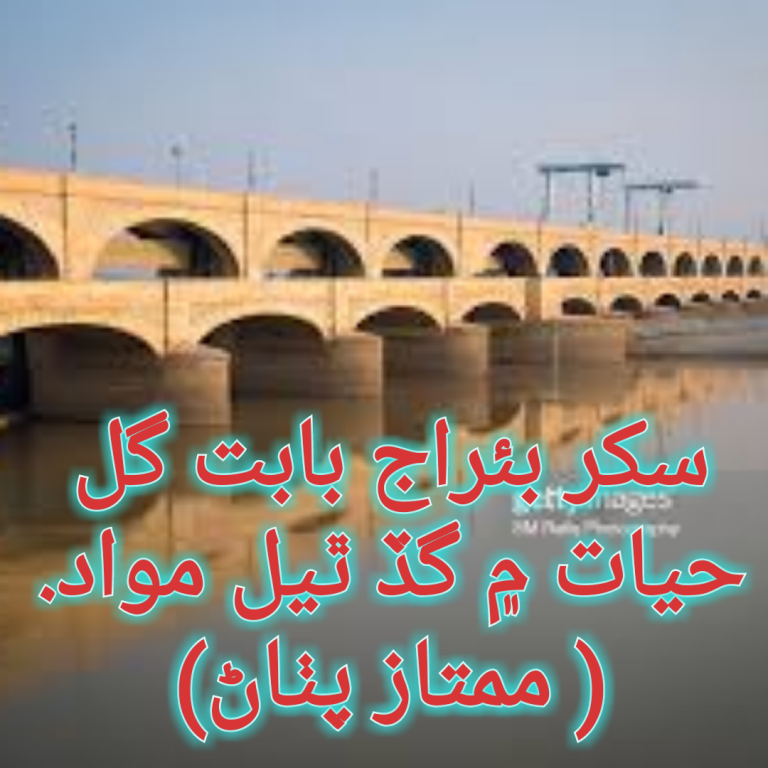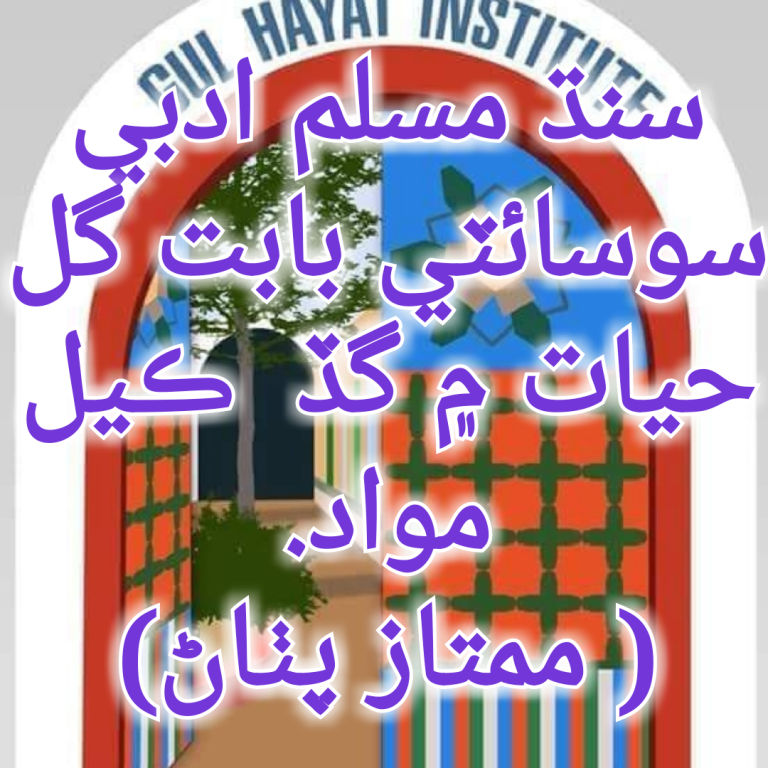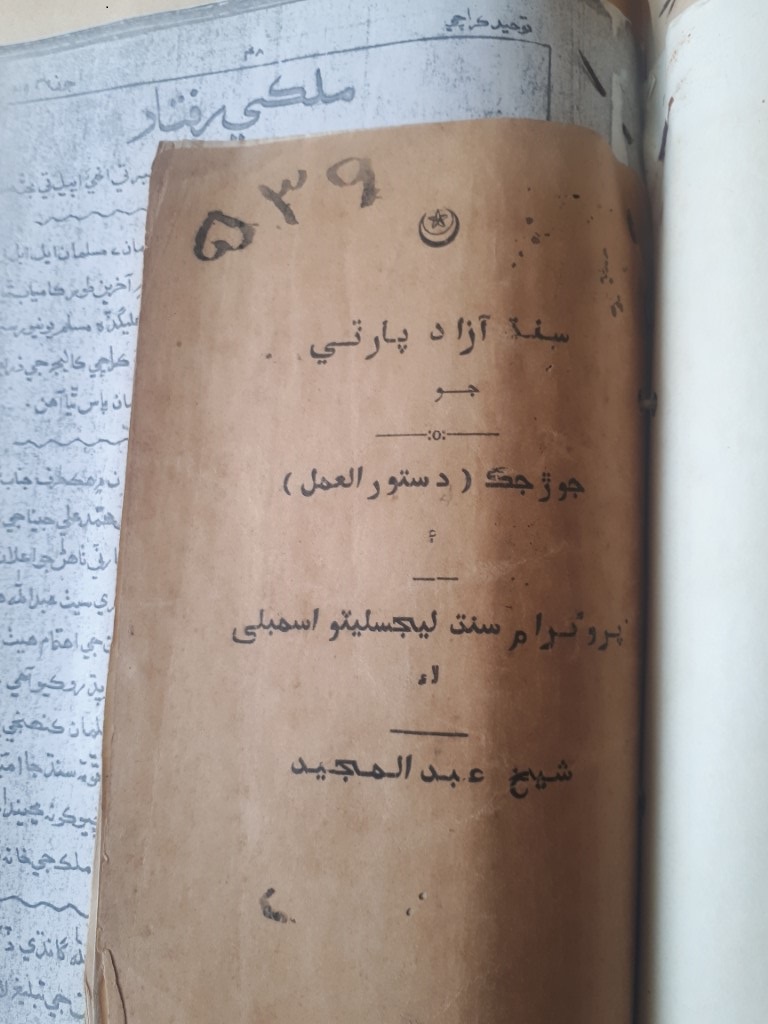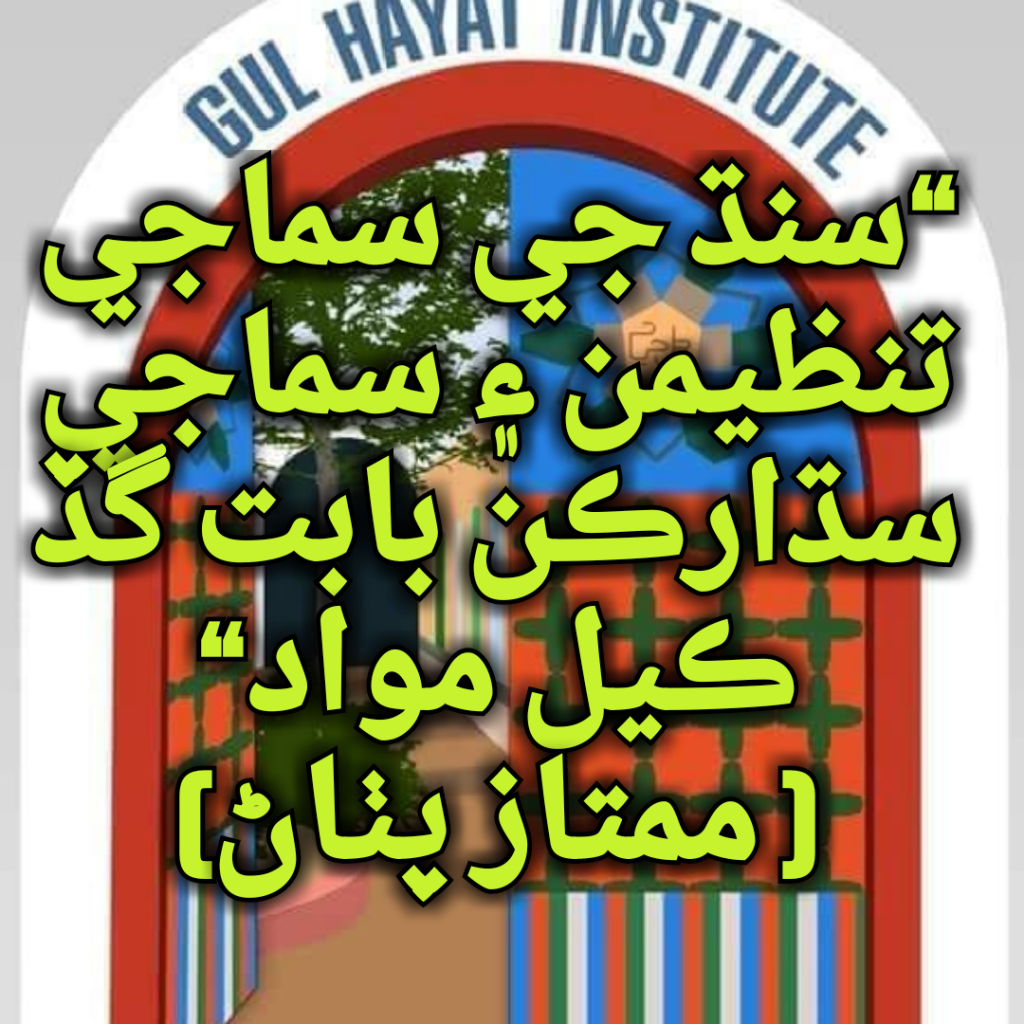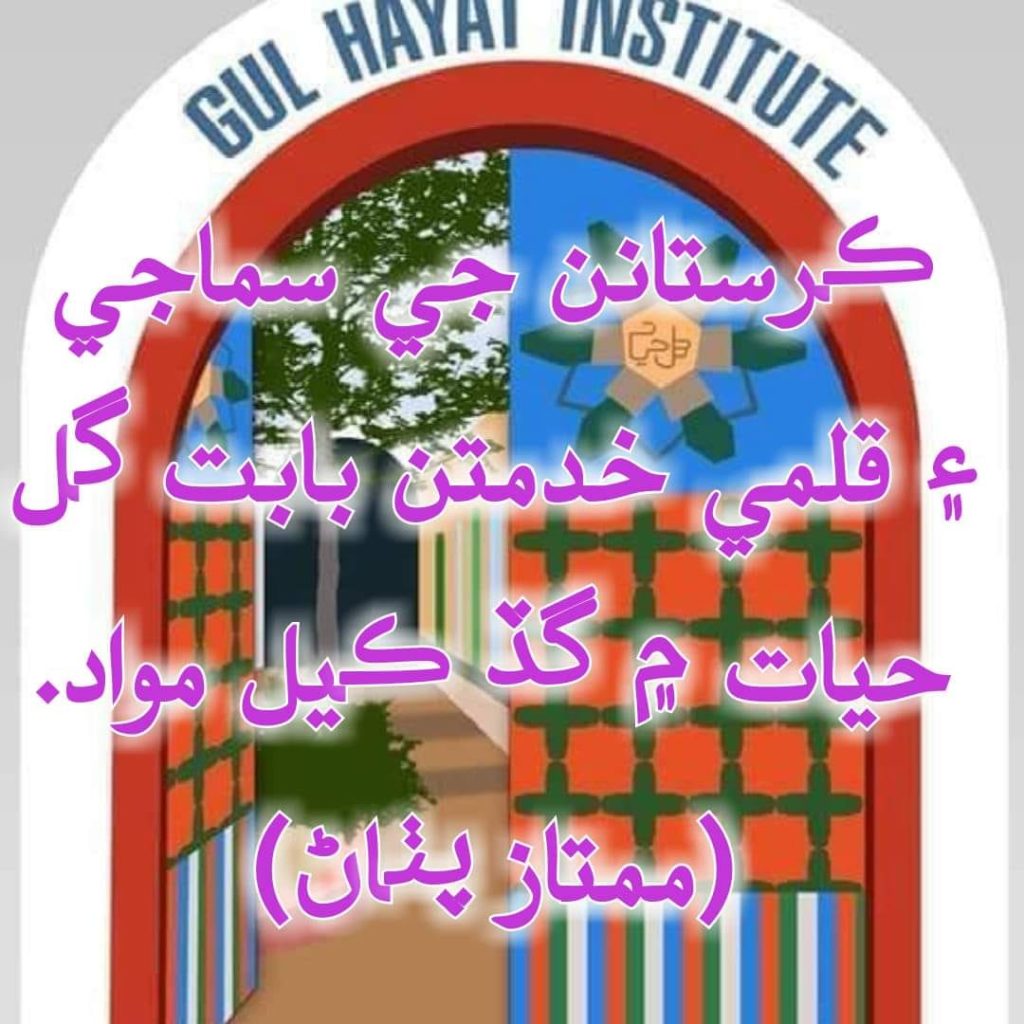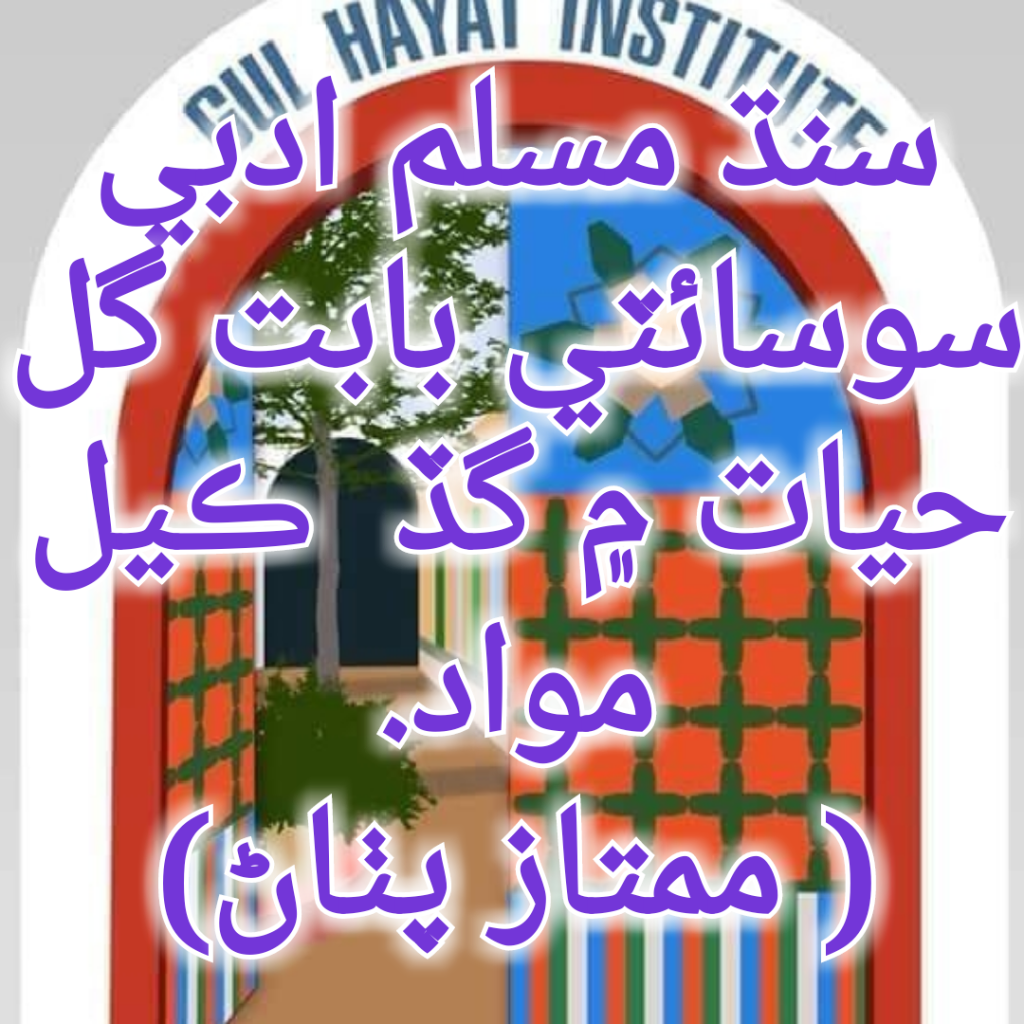4TH SINDH PROVINCIAL CONFERENCE
HELD AT SHIKARPUR
(1917)
The first session of the fourth Provincial Conference took place this afternoon under the president ship of Rai Bahadur Hiranand Khemsing, B.A., LL.B., in a specious pandal erected near Shahi Bag where about 500 delegated and an equal number of visitors from different parts of Sind had assembled.
After welcome songs the chairman of the reception committee; Seth Lunidasing, a leading merchant of Shikarpur, welcoming the delegates, explained that the object of the Conference was to place the needs of the people before Government to bring about a better understanding between rulers and rules. He recalled the ancient greatness of Shikarpur when the town was governed by its merchants under the suzerainty of Afghan rulers. After briefly referring to the war and India’s put in it, the Defence of India Force Act and its far-reaching consequences, indentured labor and the recent pronouncement of the Viceroy, the Public Service Commission and the keen disappointment caused by its report, the Arms Act, the need for free compulsory education, the separation of the executive and judicial functions, and self-government on the lines recommended by the last Congress and the Moslem League, he spoke at some length upon the exorbitant rise in the price of fuel in Sind and the need for Government to come to the rescue of the people by fixing low selling rates, the enhancement of the settlement period from ten to thirty years, the expediting of the construction of the proposed barrage, the removal of restrictions on the water supply of certain zamindarikarias, the question of making Shikarpur the headquarter of the proposed new district of Jacobabad, and the need of raising the status of city magistrates of important towns to the grade of Deputy Collector.
Seth Chanomal, Mr. Murlidhar, Mr. Abdul Rahman of Larkana, Mr. Lokamal of Karachi, Mr. Mulchand Pessumal, Mr. Viroomal Begraj and Mr. Naraindas Metharam made speeches eulogizing the president.
The president, referring to the war, expressed great satisfaction at the generous appreciations of the King Emperor, and his ministers of Indian’s assistance. Regarding the Defence of India Force Act he expressed pleasure that the mental spirit of the people was on the eve of being revived, and he hoped that the military career which the measures promised to India would not be frustrated by obstruction, rules and conditions, and that the Defence of India Force would satisfy their genuine aspirations and would be the prelude to another organization, larger and fuller, for fighting England’s battles inside and outside India in all climes wherever the interests and safety of Empire led it.
The people were anxiously looking forward to the day when the war should be concluded by a victorious peace and the reforms in the system of government given practical shape. India would no longer be satisfied with a mere make shift or a make believe. What India wanted was real genuine reform, first and foremost of which was fiscal autonomy. Unless the finances of India were managed by Indians for the interests of India, the depreciation of wealth which had been going on for the last hundred years would not cease, and India which was already notoriously poor would be poorer still. Lancashire was still raising its head and demanding a further countervailing duty on Indian goods, and though it had been silenced for the time being there was danger still from that quarter. He hoped that justice and decency would not be sacrificed to the interests of a clique and that Indian interests would not be throttled by the combination of Lancashire, however formidable it might be.
Referring to the protection of Indian industries he said that free trade after the war was an exploded shibboleth. Its votaries had been rudely awakened by the present war. The monopoly of all key industries by Germany had demonstrated to England that it had been committing suicide by letting others utilized its resources. If England was going to protect itself against Germany by heavy tariffs it was just that India should be invested with the power to protect its industries, not only against other, but against England itself. The labours of the Industrial Commission, which would shortly make proposals for starting new industries, would be of no avail unless those industries were fostered by protective duties.
With regard to the report of the Public Services Commission he said that it had caused deep disappointment to the aspirations and expectations of Indians, and he hoped that the whole question would be re-approached from a new angle and satisfactorily solved.
He called upon the people of Sind to join other provinces in urging upon the British Government the necessity and desirability of installing a substantial measure of self government in the country.
Mr. Hiranand proceeded to criticize the land revenue policy in Sind. Though the soil of Sind was poor it was much more heavily taxed than other provinces in the Bombay presidency. While the assessment per acre in other parts of India varied between 8 annas and Re. 1-9 per acre, in Sind it mounted up to Rs. 5 per acre and was seldom less than Rs. 2 per acre. This had resulted in the poverty of the peasantry and the bulk of the Zamindars, who were sunk in debt. The Rayatwari system had proved a miserable failure everywhere. It was a double failure in Sind where the soil was poor, water scanty and needing to be raised at heavy cost by means of Persian wheels, and the rent payable to the State was the heaviest. He criticized the ten year’s settlement in Sind and said that the interests of Government itself demanded a sixty year’s settlement. Besides long period assessment he advocated that over loaded assessment be reduced to reasonable rates, that the Fallow rules be worked honestly and faithfully and remissions be given liberally in bad years.
Referring to the Agriculture Department he said that hitherto its work was more or less confined to the administration of American cotton in Sind. But the time had now come when the Department should pay attention to other staple crops. He advocated the grant of land to educated persons who would appreciate the improved methods of cultivation and adopt inn vations which the Agriculture department might introduce. He could not understand why Government was fighting shy of the educated classes in the matter of grants of lands.
He declared that the Sind police were inefficient and suggested improvements in the pay and prospects of the subordinate service which he believed would attract a better type of persons. He also advocated free and compulsory education conducted on national lines and the appointment of a Sindhi pleader on the bench of the Judicial Commissioner’s Court, and criticized at length the delegation of wide powers to the Commissioner in Sind.
Referring to Co-operative credit societies in Sind he said that the progress made by the movement was most meager. This he attributed to the absence of a full time man of experience to organize and develop the movement, and he hoped that Government would supply the want.
He then referred to the expensiveness of justice in the Court of the Judicial Commissioner, and the heavy cost of translating and typing every paper in the lower Court which should be borne by Government.
He regretted that the Industrial Commission could not visit Sind. Although the attention of the Government of Bombay was drawn to the commission, it did not think that there was anything in Sind to attract the Commission. A paper read before the Citizen’ Association of Hyderabad by Mr. Lakhumalani, who had situated at the Thatta Research Institute, showed that there was a vast field for the industrial exploration of the province.
In the cities there was a growing desire for the emancipation of municipalities from official leading strings. He recommended the extension of the municipal franchise by giving one vote to every literate and every owner of immoveable property, as with the possession of more rights would come the sense of responsibility. At the beginning there would be misuses of that right but in the end it was sure to come right. While they were pressing for such reforms the Government of Bombay had of late been adopting a policy of repression and suspending municipalities presided over by non official presidents for one reason or other. During the past few years Ahmedabad, Bijapur in the Presidency proper and Hyderabad in Sind had shared such a fate. From his experience of his native place, Hyderabad, he could say with a certain degree of confidence that the remedy of suspension had proved to be much worse than the disease itself. During the last year and a half the Committee of Management which had replaced the Municipality had done no work. Although they had a costly Municipal Commissioner, the sanitation, the lighting, road repairs and water supply were in a much worse condition than before. The Committee held its meeting in camera and it’s proceeding and accounts were a sealed book to the public.
He also drew the attention of the delegates to the fact that at Hyderabad Muhammadan representation on the municipality was inadequate before the suspension. He advised the Hindus to make it up to stop the demand for separate representation for Muhammadans which threatened to divide the two important communities.
In conclusion he made it clear that no one in Sind desired to embarrass the Government by holding the conference during the tendency of the war. They asked for no immediate concessions. They were formulating proposals and were asking Government to take note of them and comply with them after the war was over.
After the conclusion of the President’s speech Mr. Polak was introduced to the audience by the president, and made a short speech on the indentured labor question, advising the audience to urge upon Government to do away with in conclusively, immediately and for ever.
After the election of the subjects committee the conference adjourned for the day. (The Daily,Gazette dated April 9, 1917 Page No. 4).
SECOND DAY’S SITTINGS
At the resumed sitting of the Provincial Conference on Sunday afternoon the following resolution were passed after considerable discussion, the resolution on local self-government occupying the greater part of the time:-
Proposed by the Hon. Mr. Harchnadrai and seconded by the Hon. Mr. Bhurgri, that (a) Having regard to the fact that the avowed aim of Great Britain in participating in the European War had been the Defence of the principles of liberty and justice, and in view of the enthusiasm with which India has identified herself with the cause of the Empire, the movement towards a reconstruction of the Imperial fabric, the declarations of responsible ministers of His Majesty’s Government as to the changed position of India in the Empire and the capacity of the Indians to manage their own affairs, and further having regard to the fact that the present system of Government does not satisfy the legitimate aspirations of the people and has become unsuited to the existing conditions and requirements, the conference strongly urges upon His Majesty’s Government that a Royal proclamation be issued announcing to the people of this country that it is the avowed aim of British policy to confer self-government on India; (b) That this conference demands that a definite step should be taken towards self government by granting the reforms contained in the scheme prepared by the All India Congress Committee in concert with the Reform Committee appointed by the All India Moslem League; (c) That in the construction of the Empire India shall be lifted from the position of a dependency to that of an equal partner in the Empire with the self government dominions.
Proposed by Dr. Choithram and seconded by Mukhi Jethanand that this Conference whilst thanking the Government of India for prohibiting, during the War, the recruitment of indentured labor in India for service in Fiji and other Crown colonies in the moral, intellectual, economic and social interests of this country, respectfully urges, that during the intervening period legislation may be passed finally and unconditionally abolishing the system of indenture; this Conference is further of opinion that no alternative system of recruitment of labor for service abroad will be acceptable to the conscience of India, that a cable conveying the purport of this resolution be forwarded to Secretary of State for India for consideration and by the May Conference to be held in London on this subject.
Proposed by Mr. Naraindas Mehtaram and seconded by Seth Rewachand that this Conference strongly urges that Government should take effective steps to bring about an early redress of the following longstanding grievances of third class railway passengers from whom the largest portion of railway revenue is derived; – (a) Overcrowding in third class carriages; (b) want of ventilation and adequate arrangement for water in latrines and (c) ill-treatment of third class passengers by the railway staff.
Proposed by the president Hiranand khemsing that it is the opinion of this Conference that at least one of the Additional Judicial Commissioners of Sind should be an Indian selected from the Sind Bar.
That this Conference protested against the ordinate delay in the publication of the report of the Sind Land Settlement Committee, and strongly urges that the period of settlement be raised to not less than 60 years and that a limitation for the State demand on the land be fixed.
Proposed by Seth Lokamal Chellaram and seconded by Mr. Mathradas Ramchand that this Conference strongly urges upon the Government the necessity of substantially extending wherever possible the facilities for teaching the Koran to Muhammadans and Hindu Scriptures to Hindus in the Local Board schools in Sind outside of school hours.
That this Conference urges the people of Sind to use swadeshi articles even at monetary sacrifice.
That this Conference humbly protests against the policy of the Bombay Government in disallowing questions on important subjects without any convincing proofs. (The Daily Gazette, dated April 10, 1917 Page 8)
CONCLUDING SITTING
The third and last session of the Provincial Conference to day lasted for six hours, during which time the following resolution were discussed and passed:-
REPRESENTATION ON MUNICIPALITIES
This Conference is of opinion that in Sind Municipalities and Local Boards the proportion of Hindu and Muhammadan representatives may be fixed on the basis of population, educational qualifications and taxation, but before fixing that proportion the opinion of Municipalities, Local Boards and other public bodies should be invited, but in no case should number of representatives of any community exceed the proportion to which that community would be entitled according to population; (b) that after the fixing of such proportion the election of representatives should be by a mixed electorate of Hindus and Muhammadans; (c) that Government while making nominations should be guided by the proportion fixed for election.
This was proposed by the Hon. Mr. Harchanrai who said that the resolution was against his principles, but he had changed his view out of respect for the feeling of Muhammadans and the understanding arrived at the last Congress and Muslim League.
Mr. Jamshed N.R. Mehta, seconding, congratulated the Hindu community on the concession made to their Muhammadans brethren and hoped it would result in a better understanding between the two communities.
HYDERABAD’S MUNICIPAL AFFAIRS
That the appointment of a Municipal Commissioner for the town of Hyderabad is illegal, and experience has shown that the administration of the Committee of Management and the Municipal Commissioner has resulted in no good to the town. This conference therefore urges Government to restore the rights of local self government to the people of Hyderabad.
PUBLIC SERVICES REPORT
(a) This conference strongly objects to the recommendations of the Public Service Commission and is of opinion that in view of changed circumstances which had raised new hopes and aspirations in the minds of people after the sitting of the Commission the report should not be taken notice of by the Government; (b) this conference offers its thanks to the Hon. Mr. Justice Abdul Rahim for the expression of his views against the report of the Commission.
DEFENCE OF INDIA ACT
That this conference thanks Government for introducing the Defence of India Act and brings to its notice that it is necessary not only to increase the number of centers for giving military training but to increase the number of recruits for such training. This conference is also strongly of opinion that all distinction between Europeans and Indians with regard to pay and position may be done away with.
That this conference strongly disapproves of the way in which the Defence of India and other Acts are being brought in operation, and thus depriving them of their liberty without due investigation. The conference lays great stress upon the recommendation made by public bodies that advisory committees with one Judicial officer and one Indian lawyer be appointed in each province for the investigation of each case. (b) This conference strongly objects to the unjust and improper orders issued by Government under the Defence of India Act against Bal Gangdhar Tilak, Babu Bipin Chandra Paul and Mr.Mahmud Ali and prays that the Government will be pleaded to cancel these orders.
FREE COMPULSORY EDUCATION
That this conference strongly supports the resolution of the Hon. B. N. Surma proposed in the last Imperial Legislative Council to the effect that free compulsory primary education be given in India.
POWERS OF THE COMMISSION IN SIND
That the delegation of extensive powers to the Commissioner in Sind is not desirable and therefore Bombay Act 5 of 1868 should be repealed.
R A S A I
That this conference while admitting that certain officers have exerted their utmost to put a stop to Rasai, expresses its dissatisfaction that the evil has not died out, and is of opinion that unless touring officers do not reduce the period of their touring season and the number of subordinates taken on tours, and unless contracts are appointed from headquarters for the supply of provisions and unless revenue officers are relieved of all responsibility there will be no hope of the evil dying out.
POLICE POWERS
That the police should be deprived of the powers under Section 110 of the Criminal Producer Code and these powers should be given to the Mukhtiarkar who should decide such cases with the advice of a committee of representatives of the people.
INDUSTRIAL DEVELOPMENT
That this conference urges the Government to appoint an expert to enquire into industrial development of the province.
COST OF JUSTICE
That justice in the Court of the Judicial Commissioner be made less expensive, the charge for translation and typewriting is paid by Government.
INDIANS AS EDUCATIONISTS
That this conference records its conviction that the development of education in India on national lines requires that administrative and educational service should be manned mainly by well qualified Indian and that the Senates of Indian Universities should be in the consist of elected Indians and that such Senates should have complete control over their own executive and educative policy.
SUKKUR BARRAGE
This conference reiterates the resolution of the last conference that in view of the shortage of water in the river Indus, the Sukkur Canal Project which has been so long hanging fire be given immediate effect to and until that scheme is carried to completion no new canals be allowed to be opened in the Punjab.
The president in his concluding remarks congratulated the organizers of the conference on its unique success. He said that no previous conference had attracted such large numbers of enthusiastic people.
The proceeds from the sale of delegates and visitors tickets amounted to over Rs. 4,000; about 560 visitors were provided with free board and lodging, and there were about 200 volunteers, some of whom had come from Karachi and Hyderabad. A very large number of Hyderabad is attended the conference.
The material/data/information can be provided on request
